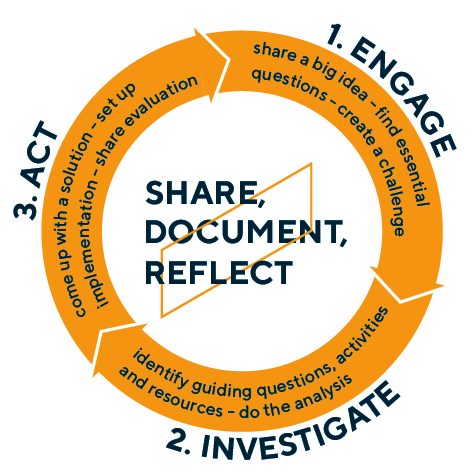Challenge-based learning in Tampere University
Challenge-based learning takes places through the identification, analysis and design of a solution to a sociotechnical problem. The learning experience is typically multidisciplinary, involves different stakeholder perspectives, and aims to find a collaboratively developed solution, which is environmentally, socially and economically sustainable. (Malmqvist, Kohn Rådberg, and Lundqvist 2015).
CBL seeks the challenges arising from the needs of people, society and the planet which are complex and difficult and therefore demands the skill of complex problem solving*. Understanding the real problem requires students to understand and empathize with the user and the stakeholders by service oriented* thinking. Working in this multidisciplinary basis using team learning to succeed, the students must coordinate with others* and manage people*. To find effective solutions the students must use critical thinking* and creativity* and in order to be able to choose the most suitable solution to test, they must learn to make decisions* based on evidence, rather than personal preference. Through this process, students learn meta-skills which could bring them a step closer to realizing their professional life goals.
*skills needed in the future working life, based on World Economic Forums report
How Challenge-based learning work exactly?
This pedagogy combines learning by doing and service-learning by approaching learning with three steps (The Challenge Institute 2018).

Three steps of Challenge-based learning
This informational webpage about Challenge-Based Learning is part of an Innovation of Ecucation lab of ECIU university and a product of workpackage 3.
The European Commission’s support for the production of the ECIU University content does not constitute an endorsement of the contents, which reflect the views only of the authors, and the Commission cannot be held responsible for any use which may be made of the information contained therein.